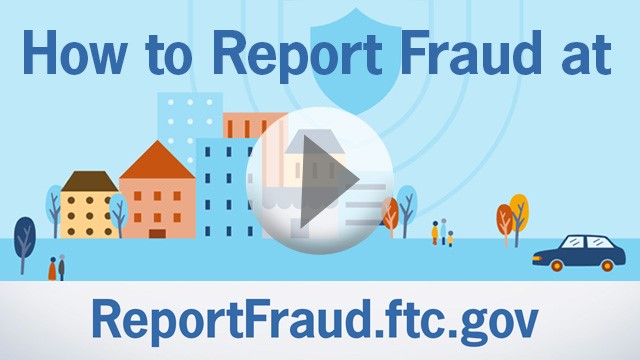Whether it’s a bogus message claiming your trademarks are about to expire unless you transfer money immediately or threats to ruin your credit if you don’t pay for unordered office supplies, scammers have small businesses in their sights. You can help the FTC and its partners fight fraud and you don’t even need to wear a superhero cape (unless you want to). Your story is your superpower. When you tell the FTC about frauds, scams, and other kinds of bad B2B practices, you’re helping the FTC and our law enforcement partners spot and stop scams. To make it easier, the FTC just launched ReportFraud.ftc.gov – a new version of the FTC’s consumer reporting website. But don’t let that description fool you. It’s for small businesses, too.
By following a few short steps on ReportFraud.ftc.gov, your report is instantly available to more than 3,000 federal, state, and local law enforcers across the country. After you tell us what happened, you’ll get advice from ReportFraud.ftc.gov on what you can do next to recover and protect yourself and your small business against fraud. Want to see how it works? Watch this “How To” video.
Why report fraud? Because your report can make a difference. We use reports like yours to investigate, bring law enforcement cases, and alert companies and consumers about what frauds to be on the lookout for so they can protect themselves, their businesses, their friends, and family. The FTC also uses reports to share data about what is happening in your community. You can check out what is going on in your state or metro area by visiting ftc.gov/exploredata.
In addition, when customers approach you about suspected fraud – including when a scammer has falsely used your company’s name – suggest they visit ReportFraud.ftc.gov (or ReporteFraude.ftc.gov for Spanish speakers).
Help us spread the word. By encouraging people to tell the FTC about their experience at ReportFraud.ftc.gov, you’re helping fight fraud in your community. Thank you — and keep up the good work, superheroes!

